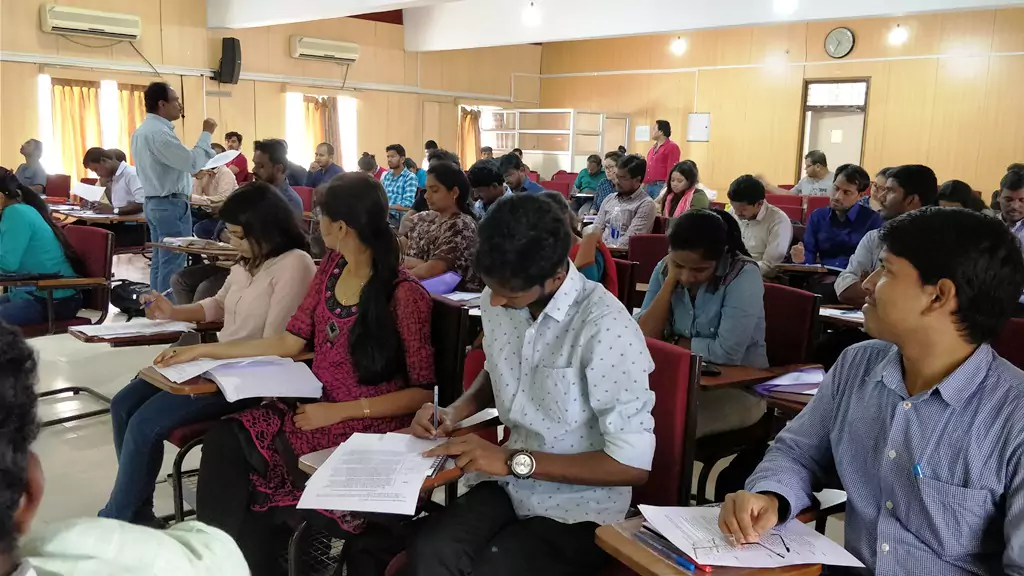
As highlighted by Lakshmi Subramanian in her illuminating article on scroll.in, a recent writing workshop sponsored by the Journal of Urban Studies and Review of Urban Affairs offered unique insights into the prevalent challenges within India’s higher education system. The workshop, conducted from June 9-14, 2023, in Goa, brought into sharp relief the deficiencies in academic writing skills and the external pressures young scholars face in the race for academic publications and rankings.

✅ AI Essay Writer ✅ AI Detector ✅ Plagchecker ✅ Paraphraser
✅ Summarizer ✅ Citation Generator
Key Takeaways:
- India’s academic environment is increasingly pressurized, yet higher education institutions often neglect to equip students with effective writing and argument structuring skills.
- Traditional pedagogical methods of teaching writing in higher education are falling short for diverse student populations.
- Small, intensive workshops could be a transformative platform to cultivate critical thinking, engagement, and academic writing proficiency.
- Such workshops can potentially promote a collaborative learning environment and a deeper understanding of research processes and rationales.
The Pressing Issues in Higher Education
According to a report published by the All India Survey on Higher Education (AISHE) in 2022, a significant gap exists in the quality of research output from Indian higher education institutions. Over the past two decades, the urgency to publish research papers and the push for education internationalization has intensified in India’s academic landscape. However, these processes necessitate proficient academic writing skills, an area often inadequately catered to by many institutions. This inadequacy is further amplified by the discontinuation of the MPhil program, previously seen as a critical stepping stone between a master’s degree and a doctoral program.
The Way Forward: The Potential of Small, Micro-Level Workshops
Drawing from her personal experience as a mentor, Subramanian proposes an innovative solution – small, targeted workshops designed for intimate groups. Like the one she guided, such workshops offer an immersive platform for learning, stimulating critical thinking, and fostering engagement.
One of the workshop attendees, Ayesha, a doctoral student from Delhi, shared,
“I’ve attended several academic writing courses, but this workshop was different. It wasn’t about memorizing rules; it was about understanding the craft of writing and communicating our research effectively. The collaborative environment also helped us learn from each other’s experiences and perspectives.”
Professor Ram, another mentor at the workshop, agreed, stating,
“Workshops like these offer a chance to break free from rigid academic structures. They help scholars learn not just ‘how to write,’ but ‘how to read,’ ‘how to identify core arguments,’ and ‘how to recognize the spine of an argument.’ These are invaluable skills in today’s academic environment.”
The activities in these workshops range from open sessions to small group discussions, allowing participants to delve into the fundamental elements of a journal article, gain insights into the perspectives of editors and referees, and learn how to respond constructively to feedback.
Conclusion
While expanding such workshops on a larger scale might present logistical challenges, Subramanian passionately advocates for implementing these carefully designed, routine initiatives. Such ventures have the potential to instill a critical understanding of academic work, knowledge production, and the intricacies of higher education and publishing.
With the current pressures facing academia in India, it is clear that the traditional pedagogical paradigm needs a fresh approach. By focusing on immersive and collaborative learning experiences like these workshops, we can empower a new generation of scholars with the tools they need to thrive in the challenging world of academic research.
Related stories:
How Academic Texts Can Inspire and Influence
Are More Publications the Key to Academic Success?
Acing Your Next Essay: Academic Writing Tips of the Month
Follow us on Reddit for more insights and updates.





Comments (0)
Welcome to A*Help comments!
We’re all about debate and discussion at A*Help.
We value the diverse opinions of users, so you may find points of view that you don’t agree with. And that’s cool. However, there are certain things we’re not OK with: attempts to manipulate our data in any way, for example, or the posting of discriminative, offensive, hateful, or disparaging material.